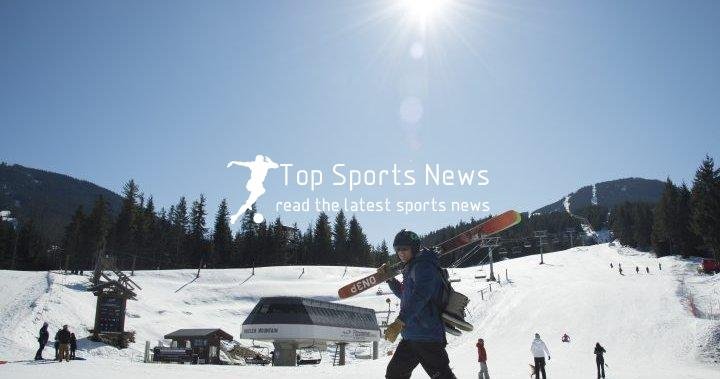
Canadian ski resorts that rely heavily on international workers are steadying themselves for a labour shortage this winter as the visa approval process by the federal government slows.
With international borders reopening to vaccinated travellers and vaccine passports allowing for increased guest capacity, Paul Pinchbeck, the CEO of Ski Canada, said the expected busy ski season is “creating a conundrum” for resorts across the country.
Read more:
Last-day rush to buy ski passes tanks Big White web page, local ski culture appears on the rise
“We have significant demand for our products, which is exemplified by early-season travel bookings and season’s pass sales, but we are short many thousands of employees across the country and that’s going to hamper our ability to deliver their services this year,” he said. “The magnitude of this can’t be understated.”
Michael Ballingall, senior vice-president at Big White Ski Resort in Kelowna, B.C., said about 60 per cent of its staff members were international workers on a two-year International Experience Canada visa before the pandemic.
He said the resort normally has an influx in seasonal worker applications in the fall, but the pandemic is making it difficult for people to acquire working visas. The resort is currently at 45 per cent of its staff capacity and Ballingall said secondary services, like hospitality, will suffer if nothing changes.
Irish visa applicant Lili Minah has already been offered a bartending job at one of the three Mooney Supply Group restaurants in Big White village and is hoping to receive a response from Immigration Canada before her flight to British Columbia on Nov. 20.
“If they don’t issue me an invite to apply for a visa by then, I guess it’ll just be a holiday,” she said.

Ana Mooney, who offered Minah the serving job, said 60 per cent of their staff are typically visa holders. She said her restaurants are short about 50 staffers heading into the season and three staff members have already chosen to return home because the visa process took too long.
“Tourism’s being hit so hard by COVID and having a second year of this means some people won’t weather the storm,” she said. “It’s not just in the ski industry, it’s tourism in general. As the borders open, there’s going to be more people visiting, but we don’t have the workforce to look after them.”
Ballingall said only a small number of the visas are being processed, while the permits for those people allowed to work last year are expiring, leaving both workers and resorts in limbo.
“When the pandemic hit, a lot of (international workers) still had their visas going, so they could work for us last year,” he said. “This year, most of those people are still in the country but their visas have expired, so we’re lobbying the government to turn visas back on because everyone in this industry is in a similar boat.”
Gemma Nicolle, 30, has worked two winters in retail at Big White, and is hoping to have her work visa reinstated in time for ski season.
“I’m going to have to start working again pretty soon to be able to stay here, so around the end of November, if nothing improves, I’ll probably have to head home,” she said.

Ballingall said Canada West Ski Areas Association and the Canadian Ski Council have joined Big White in hiring a lobby firm to convince the government to reinstate the expired visas.
“We need more people and we’re asking the government to help us recover our businesses but also to offer recovery for Canadian tourism in general,” said Pinchbeck.
“Last year, we didn’t have this glaring need because we were heading into the various waves of COVID and were expecting to have reduced operations. This year, we’ve proven that this is an industry that can operate in a safe and responsible manner and because the governments know so much more about this virus and its transmission now, we’re confident we’re going to need those people to increase services.”
Immigration, Refugees and Citizenship Canada said in an email that ongoing international travel and border restrictions, limited operational capacity overseas and the inability on the part of clients to obtain documentation because of the pandemic have created barriers in processing, which it says hinders its ability to finalize applications, creating delays that are outside its control.
“Since early in the pandemic, IRCC has prioritized applications from workers in essential occupations in agriculture and health care, where labour is most needed to protect the health of Canadians and ensure a sufficient food supply,” the department said.
While it said it is focusing resources on resettling Afghan refugees through existing programs, there has been no pause in the processing of other lines of business, including International Experience Canada, the department said.
“Despite these efforts, we know that some applicants have experienced considerable wait times with the processing of their applications. We continue to work as hard as possible to reduce overall processing times.”
Ballingall said Big White administration isn’t panicking yet. He said he’s hoping to entice Canadian workers this winter as the Canada Emergency Response Benefit ends.
“We’ll start panicking around Nov. 1 if nothing changes because there’s just not enough Canadians in the pool right now to satisfy the industry. Something’s got to give.”
© 2021 The Canadian Press
